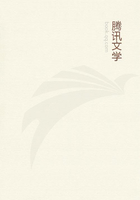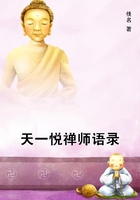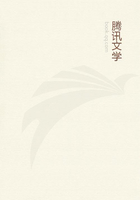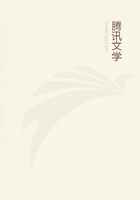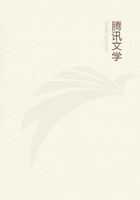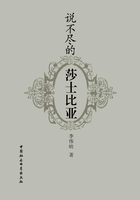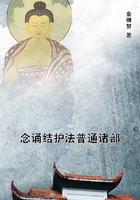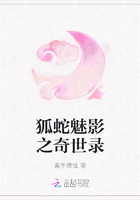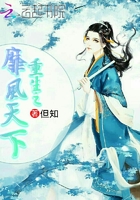Banishment, too, has this effect above all, that it either wears the exile out or develops whatever is greatest in him.'In all our more populous cities,' says Gioviano Pontano, 'we see a crowd of people who have left their homes of their own free will; but a man takes his virtues with him wherever he goes.' And, in fact, they were by no means only men who had been actually exiled, but thousands left their native place voluntarily, be cause they found its political or economic condition intolerable.The Florentine emigrants at Ferrara and the Lucchese in Venice formed whole colonies by themselves.
The cosmopolitanism which grew up in the most gifted circles is in itself a high stage of individualism.Dante, as we have already said, finds a new home in the language and culture of Italy, but goes beyond even this in the words, 'My country is the whole world.' And when his recall to Florence was offered him on unworthy conditions, he wrote back: 'Can I not everywhere behold the light of the sun and the stars;everywhere meditate on the noblest truths, without appearing ingloriously and shamefully before the city and the people? Even my bread will not fail me.' The artists exult no less defiantly in their freedom from the constraints of fixed residence.'Only he who has learned everything,' says Ghiberti,'is nowhere a stranger; robbed of his fortune and without friends, he is yet the citizen of every country, and can fearlessly despise the changes of fortune.' In the same strain an exiled humanist writes: 'Wherever a learned man fixes his seat, there is home.'
An acute and practiced eye might be able to trace, step by step, the increase in the number of complete men during the fifteenth century.
Whether they had before them as a conscious object the harmonious development of their spiritual and material existence, is hard to say;but several of them attained it, so far as is consistent with the imperfection of all that is earthly.It may be better to renounce the attempt at an estimate of the share which fortune, character, and talent had in the life of Lorenzo il Magnifico.But look at a personality like that of Ariosto, especially as shown in his satires.
In what harmony are there expressed the pride of the man and the poet, the irony with which he treats his own enjoyments, the most delicate satire, and the deepest goodwill!
When this impulse to the highest individual development was combined with a powerful and varied nature, which had mastered all the elements of the culture of the age, then arose the 'all-sided man'--'l'uomo universale'--who belonged to Italy alone.Men there were of encyclopedic knowledge _, in many countries during the Middle Ages, for this knowledge was confined within narrow limits; and even in the twelfth century there were universal artists, but the problems of architecture were comparatively simple and uniform, and in sculpture and painting the matter was of more importance than the form.But in Italy at the time of the Renaissance, we find artists who in every branch created new and perfect works, and who also made the greatest impression as men.Others, outside the arts they practiced, were masters of a vast circle of spiritual interests.
Dante, who, even in his lifetime, was called by some a poet, by others a philosopher, by others a theologian, pours forth in all his writings a stream of personal force by which the reader, apart from the interest of the subject, feels himself carried away.What power of will must the steady, unbroken elaboration of the _Divine Comedy _have required! And if we look at the matter of the poem, we find that in the whole spiritual or physical world there is hardly an important subject which the poet has not fathomed, and on which his utterances --often only a few words--are not the most weighty of his time.For the visual arts he is of the first importance, and this for better reasons than the few references to contemporary artists--he soon became himself the source of inspiration.
The fifteenth century is, above all, that of the many-sided men.There is no biography which does not, besides the chief work of its hero, speak of other pursuits all passing beyond the limits of dilettantism.
The Florentine merchant and statesman was often learned in both the classical languages; the most famous humanists read the Ethics and Politics of Aristotle to him and his sons; even the daughters of the house were highly educated.It is in these circles that private education was first treated seriously.The humanist, on his side, was compelled to the most varied attainments, since his philological learning was not limited, as it is now, to the theoretical knowledge of classical antiquity, but had to serve the practical needs of daily life.While studying Pliny, he made collections of natural history; the geography of the ancients was his guide in treating of modern geography, their history was his pattern in writing contemporary chronicles, even when composed in Italian; he Dot only translated the comedies of Plautus, but acted as manager when they were put on the stage; every effective form of ancient literature down to the dialogues of Lucian he did his best to imitate; and besides all this, he acted as magistrate, secretary and diplomatist--not always to his own advantage.
But among these many-sided men, some, who may truly be called all-sided, tower above the rest.Before analyzing the general phases of life and culture of this period, we may here, on the threshold of the fifteenth century, consider for a moment the figure of one of these giants -- Leon Battista Alberti (b.1404, d.1472).His biography, which is only a fragment, speaks of him but little as an artist , and makes no mention at all of his great significance in the history of architecture.We shall now see what he was, apart from these special claims to distinction.

